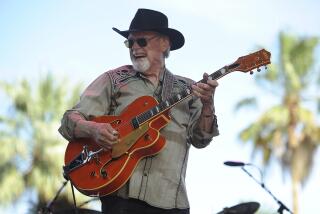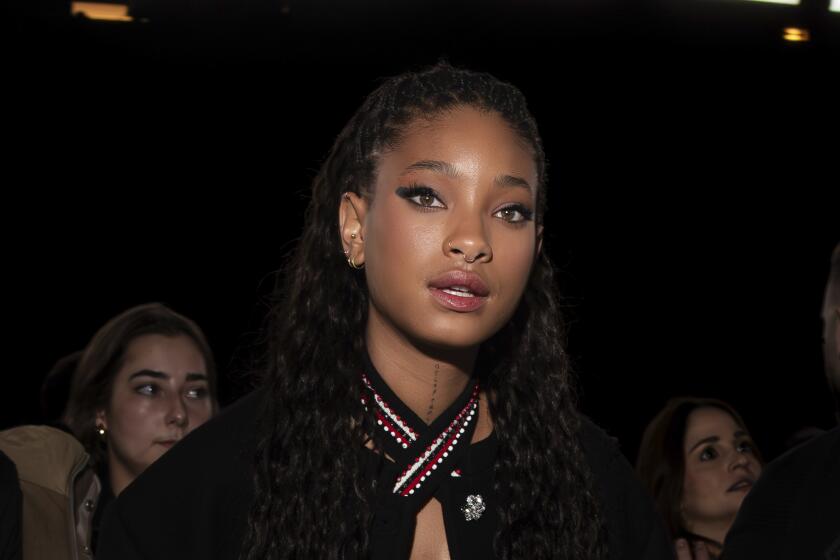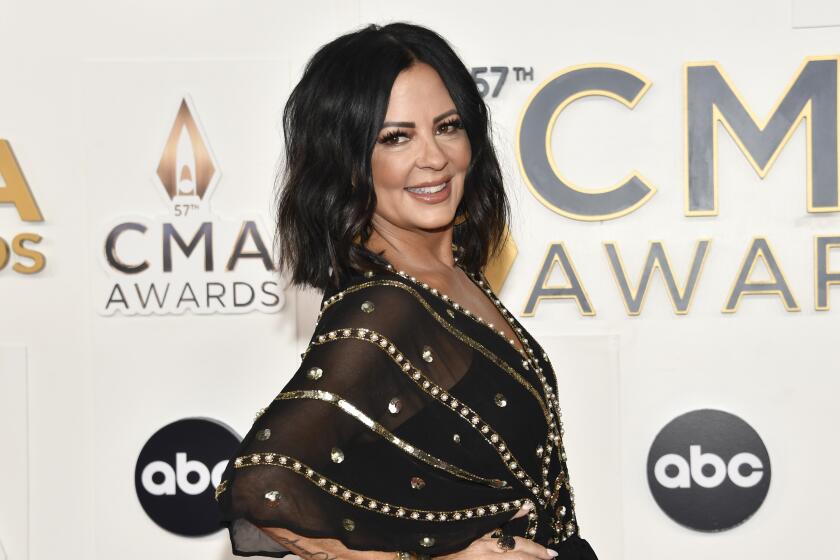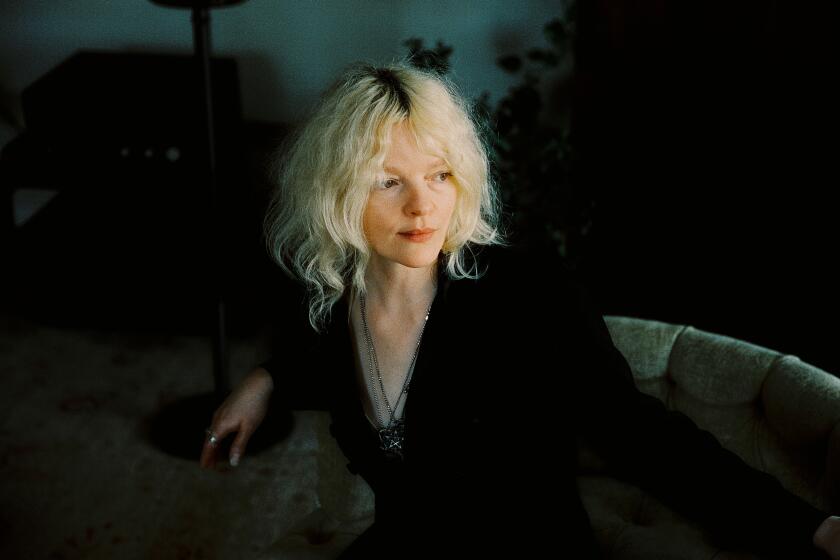Nashville’s New Breed : Three of country’s rising stars are winning over fans with works that draw on influences ranging from Paul Simon to the Allman Brothers : MARY-CHAPIN CARPENTER : The Untraditional Muse
What does the newly crowned Country Music Assn. female singer of the year listen to while she’s on the road these days?
“Let’s see, what’s in my tape box?” says Mary-Chapin Carpenter. “The B-52’s. Richard Thompson. People like John Gorka, Jim Lauderdale, Rosanne (Cash) and Rodney (Crowell). Iris DeMent. . . . Lots of stuff.”
That’s a rocking dance band from Georgia, an eccentric English singer-guitarist, a new-age singer-songwriter, an assortment of contemporary country artists--just what you might expect from a performer who, of today’s major country figures, reflects the least trace of such genre giants as Hank, Patsy, Merle or Tammy in her pop-folk blend.
“I feel most comfortable as a singer-songwriter,” says Carpenter, 34. “For that reason the music has always come from within. . . . I feel a great affinity for bluegrass and folk music and have experimented and had a lot of adventures with other kinds of music, one such example being working with (the Cajun group) Beausoleil. You kind of just follow your muse.”
Growing up in New Jersey, Japan and Washington and attending Brown University in Rhode Island, Carpenter drank up the influences, from her two older sisters’ Beatles, Motown and Stones to her parents’ Woody Guthrie and jazz, to bluegrass and beyond in college--Randy Newman, Bruce Cockburn, Townes Van Zandt, Guy Clark, Emmylou Harris, the Band.
After four albums, she still hasn’t adopted the defining trademarks of traditional country music, so her victory in the CMA Awards last month is perhaps the strongest indication yet that Nashville--for so many years depicted as resistant to change--is now wide open.
“For me, it’s been a very welcoming place,” Carpenter says of the country capital.
“I think there are some people out front who have signed artists, people like (producer) Tony Brown--he’s so well known for nurturing real unique, seminal artists. There are other producers . . . who really look for something that doesn’t fit a stereotype.
“But I think so much (credit) has to be given to the artists. If they’re not writing the songs, they’re seeking out the songs that have a conscience. I think for a long time pop music perhaps was the only genre of music that was considered to have a conscience--putting forth songs that dealt with the issues and so forth. And I think now country music has a conscience also.”
More to Read
The biggest entertainment stories
Get our big stories about Hollywood, film, television, music, arts, culture and more right in your inbox as soon as they publish.
You may occasionally receive promotional content from the Los Angeles Times.






